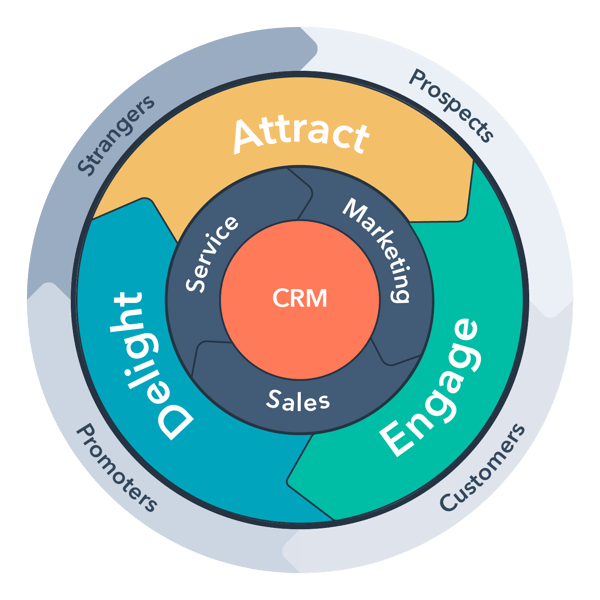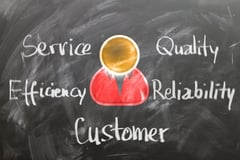Index Content
Perhaps the best place to get information on Inbound Marketing trends comes from its creators. That's why our team was present at the Inbound 2018 event held in Boston. Of all the reflections, trends and innovations discussed there, today we have chosen just one to share with you. It's the flywheel. Have you heard of it? How does it affect the image we had of Inbound Marketing until now? What changes does it introduce?
we'll tell you about it!
has the end of the conversion funnel arrived?
I don't know if you remember what the funnel was all about, but, for the avoidance of doubt, let's take a look at its history. Since the birth of the Inbound methodology, the conversion funnel became the different steps that a user had to take to achieve a specific goal within the website, either a purchase or the generation of a lead.
Its structure was used to detect which were the points on which we should focus our efforts, the percentage of losses produced in the different steps, etc. In short, the funnel established the 4 steps that the user had to follow to reach the final objective: the purchase.
It seems that Brian Halligan, CEO of HubSpot, has found a more adapted and effective alternative to the process, so much so that there is already talk of the flywheel as a model for reflecting on our business. What led this professional to change his perspective?
It seems that the linear approach of the conversion funnel is not the best option for measuring growth, because, in Halligan's words, "funnels generate customers, but they don't consider how those customers can help you grow". This reflection makes us ask ourselves the following question: What happens to the momentum that we acquire when we get this customer? Does it disappear?
Seen in this way, we are faced with a problem that, until now, we have not been able to see. Therefore, the flywheel seems to be an effective alternative that takes advantage of the momentum to keep turning, while the funnel loses it.
are we facing a powerful tool to value our invested efforts?
Advantages of using the flywheel
Changing models is often a complicated task for companies, especially because of the renewal and adaptation process involved. However, change is the first step towards improvement. The use of the flywheel has introduced a major transformation in the way we understood Inbound Marketing until now. One of its most significant changes has been the use of the flywheel:
- The shift from a linear process to a circular evolution. Customers are feeding growth.
As a consequence of this process, those who have already put it into practice have observed that attraction, engagement and loyalty can have multiple perspectives. When we attract we use the experience to create content, generate conversations and initiate relationships. When we engage we get involved to build long-term relationships. And when we build loyalty we provide a seamless experience to add real value to our potential customers.

have you thought about how your customers can help you grow?
Until recently, we've been focusing all our attention on how companies can help their potential customers. We've talked about strategies, generating content that can give them the value they need, etc. However, we've spent little time talking about how those customers can help us beyond sales.
In reality, customers help brands to grow, something that flywheel takes into account. This new concept pays special attention to customer satisfaction in order to attract new prospects, as they are not so interested in what brands tell them about themselves, but rather in what those who have already tried their products or services say about them.
The ways of measuring growth have changed, which inevitably influences the way we do Inbound Marketing strategies. The customer is our most important point. We are not talking about a replacement of the funnel, but of the flywheel as a complementary factor.
The flywheel is not the transformation of the funnel, but the reflection of its evolution.





